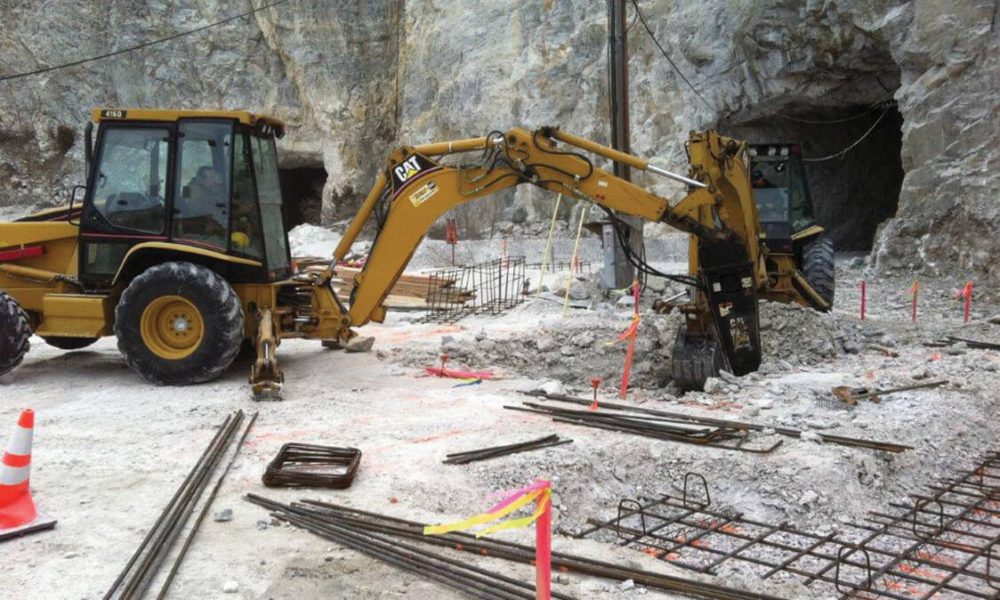Excavating Ohio - Leading Excavation Professionals for Ohio Projects
Excavating Ohio - Leading Excavation Professionals for Ohio Projects
Blog Article
Comprehensive Excavation Techniques: Understanding the Basics for Success
The mindful planning, accurate implementation, and meticulous interest to detail needed in excavation tasks require a comprehensive method that includes various essential facets. The real mastery exists not merely in comprehending these basics however in seamlessly integrating them to navigate the intricacies of excavation tasks with finesse.
Comprehending Excavation Project Planning

The first phase of any type of excavation task is the planning phase, where essential decisions are made that can considerably affect the result of the project. Comprehending the project extent, budget plan, and timeline restraints is vital for developing a thorough excavation strategy that makes certain the project's success.
One secret element of excavation project preparation is the development of a thorough timeline that lays out the sequence of turning points, tasks, and due dates. By thoroughly thinking about all these elements during the planning phase, excavation tasks can be carried out successfully and efficiently, leading to effective results - lancaster excavation.
Dirt Evaluation and Site Analysis
Conducting comprehensive dirt evaluation and site examination is a vital action in the preparation phase of any type of excavation job. Dirt analysis involves figuring out the composition, framework, and homes of the dirt at the excavation website. This details is vital for recognizing the soil's bearing capacity, wetness material, and possibility for disintegration, which are essential factors in establishing the excavation techniques and equipment needed for the job.
Website evaluation surpasses dirt evaluation and incorporates a more comprehensive assessment of the general site conditions. This evaluation includes determining any type of prospective risks, such as underground energies, environmental problems, or unstable terrain, that could influence the excavation process. By extensively evaluating the site, job supervisors can establish efficient excavation approaches that prioritize safety and security, effectiveness, and environmental management.
Making use of advanced technologies like ground-penetrating radar, soil tasting, and drone surveys can boost the accuracy and performance of soil evaluation and website assessment. Investing time and sources in these initial actions can ultimately conserve time and avoid pricey hold-ups or problems throughout the excavation process.
Equipment Selection and Usage
Efficient excavation jobs depend greatly on calculated equipment choice and application to ensure optimum performance and efficiency. Selecting the best equipment for the task is critical in maximizing performance and decreasing downtime. Elements such as the kind of soil, deepness of excavation, and job range play a significant function in determining one of the most suitable tools for the job available.

In addition to picking the suitable devices, appropriate usage is key to project success. Operators has to be educated to handle the tools securely and efficiently - septic ohio. Regular maintenance checks and prompt repairs assist stop breakdowns and ensure consistent efficiency throughout the job
Precaution and Rules Compliance
In the realm of excavation jobs, prioritizing precaution and conformity with guidelines is critical to making sure a safe and secure and legally audio functional atmosphere. Precaution incorporate a variety of practices, including carrying out detailed website analyses, applying appropriate signage and obstacles, and supplying ample safety training for all personnel associated with the excavation procedure. Adherence to regulations, such as OSHA needs in the United States, guarantees that the excavation job meets the necessary requirements to secure workers, bystanders, and the surrounding environment.
Monitoring Progress and Adjusting Strategies
How can forecast supervisors properly track the development of excavation jobs and adjust their strategies appropriately to optimize results? Surveillance development is vital for check out here guaranteeing that excavation tasks remain on track and meet due dates.

Conclusion
In conclusion, understanding the principles of detailed excavation approaches is crucial for the success of any type of job. By recognizing task planning, analyzing dirt and site problems, choosing suitable equipment, abiding by security laws, and checking progression, job managers can make sure a smooth and effective excavation procedure. Implementing these approaches will result in successful results and minimize prospective risks or obstacles during the excavation task.
The initial stage of any kind of excavation project is the preparation phase, where crucial decisions are made that can dramatically affect the result of the task. Understanding the task budget plan, timeline, and scope restrictions is essential for developing a comprehensive excavation plan that makes sure the task's success.
How can predict supervisors effectively track the improvement of excavation tasks and adjust their techniques appropriately to maximize end results? By very closely keeping track of development and being willing to adapt techniques, job supervisors can improve the general success of excavation projects.
By recognizing task preparation, assessing dirt and site conditions, selecting appropriate equipment, complying with safety laws, and monitoring progress, task supervisors can make certain a smooth and reliable excavation procedure.
Report this page